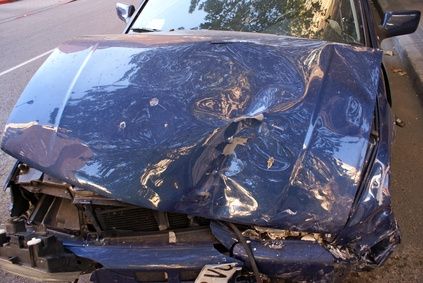Do you know the difference between “Full Coverage” and “Full Tort?” Over the years I have had the opportunity to discuss these insurance terms with a lot of folks who learned the hard way what these mean. I can’t tell you how many times I’ve asked a potential client whether they have “Full Tort” and the potential client responds “Yes, I have Full Coverage.”
Unfortunately, “Full Coverage” does not necessarily mean that the person has “Full Tort.” You can have “Full Coverage” and not have “Full Tort.” You can have “Full Tort” and not have “Full Coverage.” So what do these terms mean?
Injured in a car accident? Count on Mooney.
Full Coverage
Full Coverage means that you are carrying comprehensive and collision coverage on your vehicle. If you own a newer car, you have a loan on your car, or you are leasing your car, you probably have Full Coverage. In fact, most lenders are going to require you carry Full Coverage but they could care less whether you are carrying Full Tort.
Collision coverage means that your insurance company will pay to fix your damaged vehicle, minus a deductible, regardless of who was at fault for the crash. With Comprehensive coverage, sometimes referred to as “Act of God” coverage, your insurance company will pay to repair your vehicle if damaged not a result of a collision.
If a stone flies up and cracks a windshield, a tree branch falls and damages the roof of a car, or a driver collides with an animal resulting in vehicle damage, your insurance company will pay to repair your vehicle, minus a deductible typically, if you have Comprehensive coverage. Collision coverage and Comprehensive coverage are optional. You don’t have to purchase either unless a loan or lease company requires it.
Full Tort
The tort option selection, on the other hand, defines what rights you have if someone else causes a crash and hurts you or a member of your family. In Pennsylvania, you can choose what rights you want to have against an at-fault driver. The two options you have to choose from are Full Tort or Limited Tort.
If you chose Full Tort you basically agree that you will pay more for your insurance but you keep your rights to pursue non-economic damage claims (pain and suffering) against the at-fault driver’s insurance. If you go with Limited Tort, you give up that right to pursue claims for pain and suffering in exchange for cheaper insurance rates.
There are a few exceptions to Limited Tort (i.e. when the other driver is convicted of a DUI as a result of the crash, if the other driver is operating a vehicle registered out of state, if you are occupying a business owned vehicle at the time of the crash, if you are a pedestrian, motorcyclist, or bicyclist at the time of the crash, or if your injuries are serious.)
If one of those exceptions applies, you can still pursue pain and suffering claims even with Limited Tort. Right about now, I expect some readers are thinking that they would not want to pursue claims for pain and suffering unless the injuries were serious anyway. But what is serious to you may not be serious to an insurance company.
If you have Limited Tort, do not expect that an insurance company which may have to pay a claim will agree with you that your injuries are serious. Even if your injuries are such that you require treatment and therapy for years, it still may not be enough to convince an insurance company that the injuries are serious.
It can be quite frustrating when you are injured, must seek medical treatment for months, perhaps unable to work for an extended period of time, and unable to engage in your normal activities and then have an insurance company representative tell you that your injuries are not serious enough and that you do not deserve to be compensated.
Understand that generally this coverage selection applies to all resident relatives so if Dad chooses Limited Tort his selection binds not only himself but wife and kids too. To me, choosing Full Tort or Limited Tort is not just making a coverage selection on your auto insurance, it is a choice of whether you want to keep your rights or give up those rights in exchange for cheaper insurance rates. Choose your rights wisely.
Count on Mooney
If you’ve been injured in a car accident, you need an attorney with experience to fight for you. Learn more about our vehicle accident services.
Mooney & Associates has 15 offices through Central Pennsylvania including:
We can meet you at the location most convenient for you. No matter what, you know you can Count on Mooney. Contact us today for a consultation or call us at 717-632-4656 or toll free at 877-632-4656.



